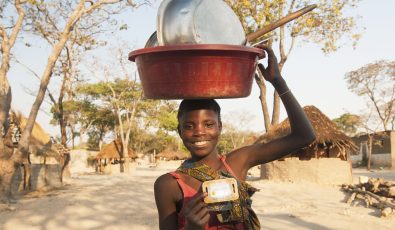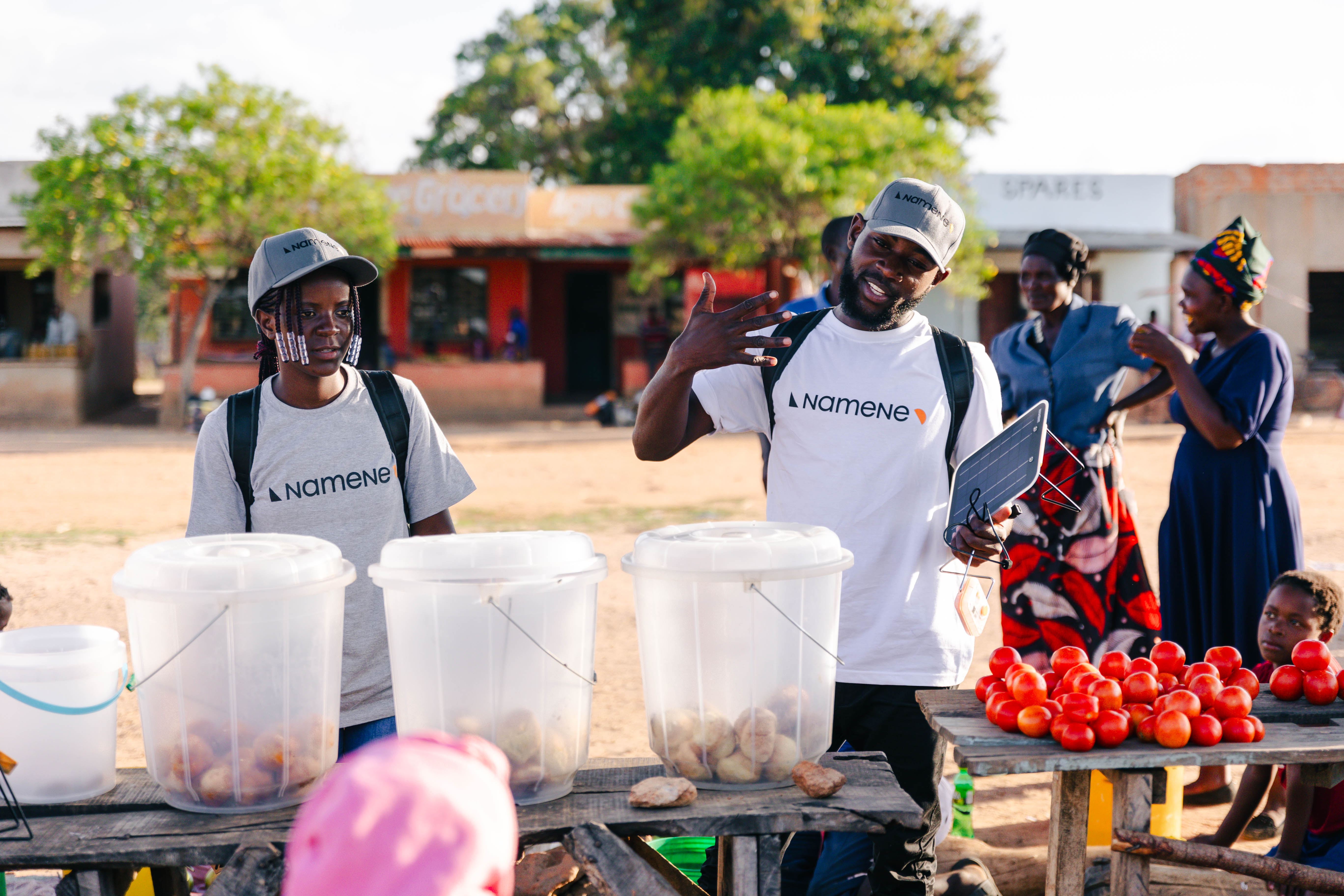PRESS RELEASE: Solar for every off-grid home in Namibia with Namene Solar carbon credit scheme
Namene Solar’s carbon credits will finance solar lights to serve every household without grid access across the entire country with Namibia’s first Gold Standard project.
Namene Solar today announced their latest carbon offsetting project in Namibia, certified by Gold Standard. It’s the first project in Namibia to receive the certification. It will see climate finance subsidise the sale of the company’s award-winning solar lights to rural homes and informal settlements across the country.
Currently just over 3% of Namibia’s population use solar to light their homes. Many people living off-grid in rural and peri-urban areas rely on paraffin candles and kerosene lamps for lighting. This is costly and harmful to health as well as contributing large amounts of CO2 into the atmosphere. They are also a leading cause of fires, which are a major issue in Namibia’s informal settlements.
Truly affordable solar light
Namene Solar’s project uses climate finance to replace fossil fuel-based lighting with renewable solar lights that provide clean, safe light at a truly affordable price, for the first time.
Namene Solar’s Managing Director Patrick Lagrange said:
“We’re delighted to receive this certification and now look to rapidly scale the deployment of our lights nationwide across Namibia. By unlocking the carbon value of a solar light we can provide clean, affordable light for customers living off-grid and in informal settlements. Climate finance schemes like Namene Solar’s are vital to cut carbon emissions and reach the UN’s Sustainable Development Goals. Our solar lights compensate for carbon emissions, eliminate harmful fuels and improve education and economic outcomes for households.”
Across Namibia 652,000 solar lights will be distributed, avoiding 252,000t CO2 and benefitting 1.2 million people. On average households save $522 by cutting out the purchase of kerosene for lamps. This is Namene Solar’s second Gold Standard project, following the certification of the Zambia project in December 2020.
Solar light SDG impacts
The project directly contributes to several of the UN’s Sustainable Development Goals (SDGs) including SDG1: no poverty; SDG7: universal clean energy and SDG13 climate action. The solar lights also have multiple, immediate benefits for users which include improving education outcomes and reducing health risks and fire hazards associated with kerosene lamps. Namibia is the second country added to the company’s solar light carbon credit programmes which cover a number of Sub-Saharan African countries that together have a significant impact on global carbon emissions.
PRESS CONTACT:
For more information, please contact climate@namenesolar.com
Related Stories

Drive Sustainable Change with Namene Carbon Credits
As the urgency of climate change grows, businesses can take responsibility for their emissions and meet sustainability goals with Namene's Carbon Credits.
Read More
Empower women to power Africa: women driving the energy transition
At Namene want to honour and champion the essential role women play by connecting their communities to energy access, becoming solar entrepreneurs and leading the charge in energy companies.
Read More
How Namene Does things Differently
Zambia Country Director, Chanda Mulenga shares lessons and strategies that have enabled our success deploying solar lights to some of the most remote communities.
Read More